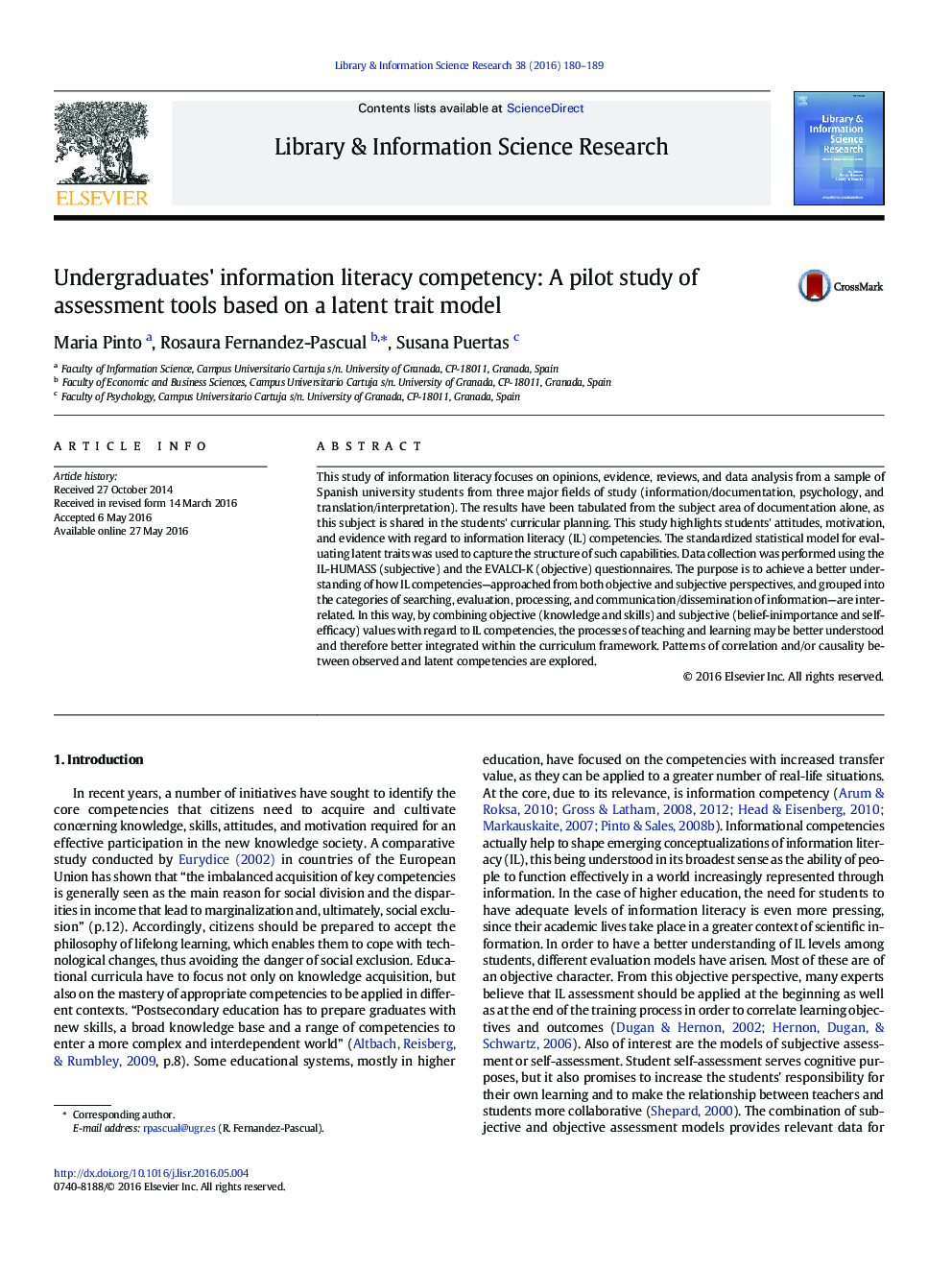| Article ID | Journal | Published Year | Pages | File Type |
|---|---|---|---|---|
| 1099167 | Library & Information Science Research | 2016 | 10 Pages |
•This study of information literacy draws its analysis from opinions, evidence, reviews, and other data.•A metric analysis of two scales related to the diagnostic evaluation of students' informational competencies is developed.•Four macro competencies/skills (searching, evaluation, processing and communication) are considered from IL-HUMASS (attitude scale) and EVALCI-K (knowledge scale) tests.•A relational model among macro-competencies for each dimension is proposed using latent-trait models.•The results confirm that information evaluation is the essential competency to lead to a gain in learning.•The results confirm that information evaluation is the essential competency to lead to a gain in learning.
This study of information literacy focuses on opinions, evidence, reviews, and data analysis from a sample of Spanish university students from three major fields of study (information/documentation, psychology, and translation/interpretation). The results have been tabulated from the subject area of documentation alone, as this subject is shared in the students' curricular planning. This study highlights students' attitudes, motivation, and evidence with regard to information literacy (IL) competencies. The standardized statistical model for evaluating latent traits was used to capture the structure of such capabilities. Data collection was performed using the IL-HUMASS (subjective) and the EVALCI-K (objective) questionnaires. The purpose is to achieve a better understanding of how IL competencies—approached from both objective and subjective perspectives, and grouped into the categories of searching, evaluation, processing, and communication/dissemination of information—are interrelated. In this way, by combining objective (knowledge and skills) and subjective (belief-inimportance and self-efficacy) values with regard to IL competencies, the processes of teaching and learning may be better understood and therefore better integrated within the curriculum framework. Patterns of correlation and/or causality between observed and latent competencies are explored.
